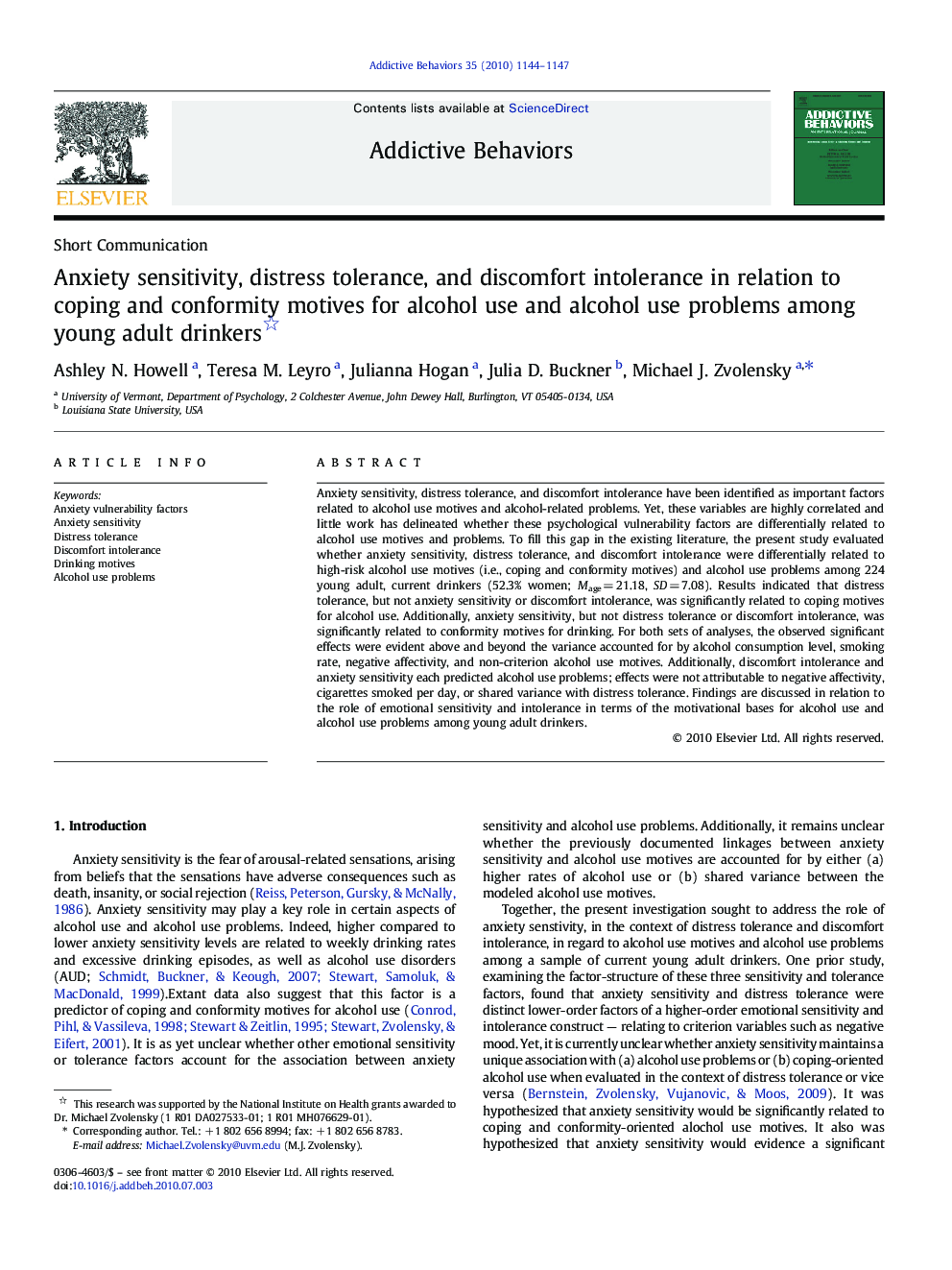| Article ID | Journal | Published Year | Pages | File Type |
|---|---|---|---|---|
| 900083 | Addictive Behaviors | 2010 | 4 Pages |
Anxiety sensitivity, distress tolerance, and discomfort intolerance have been identified as important factors related to alcohol use motives and alcohol-related problems. Yet, these variables are highly correlated and little work has delineated whether these psychological vulnerability factors are differentially related to alcohol use motives and problems. To fill this gap in the existing literature, the present study evaluated whether anxiety sensitivity, distress tolerance, and discomfort intolerance were differentially related to high-risk alcohol use motives (i.e., coping and conformity motives) and alcohol use problems among 224 young adult, current drinkers (52.3% women; Mage = 21.18, SD = 7.08). Results indicated that distress tolerance, but not anxiety sensitivity or discomfort intolerance, was significantly related to coping motives for alcohol use. Additionally, anxiety sensitivity, but not distress tolerance or discomfort intolerance, was significantly related to conformity motives for drinking. For both sets of analyses, the observed significant effects were evident above and beyond the variance accounted for by alcohol consumption level, smoking rate, negative affectivity, and non-criterion alcohol use motives. Additionally, discomfort intolerance and anxiety sensitivity each predicted alcohol use problems; effects were not attributable to negative affectivity, cigarettes smoked per day, or shared variance with distress tolerance. Findings are discussed in relation to the role of emotional sensitivity and intolerance in terms of the motivational bases for alcohol use and alcohol use problems among young adult drinkers.
Research Highlights►Distress intolerance significantly relates to coping motives for alcohol use. ►Anxiety sensitivity significantly relates to conformity motives for drinking. ►Discomfort intolerance and anxiety sensitivity each predict alcohol use problems.
